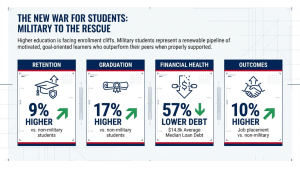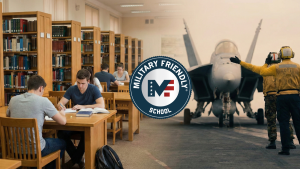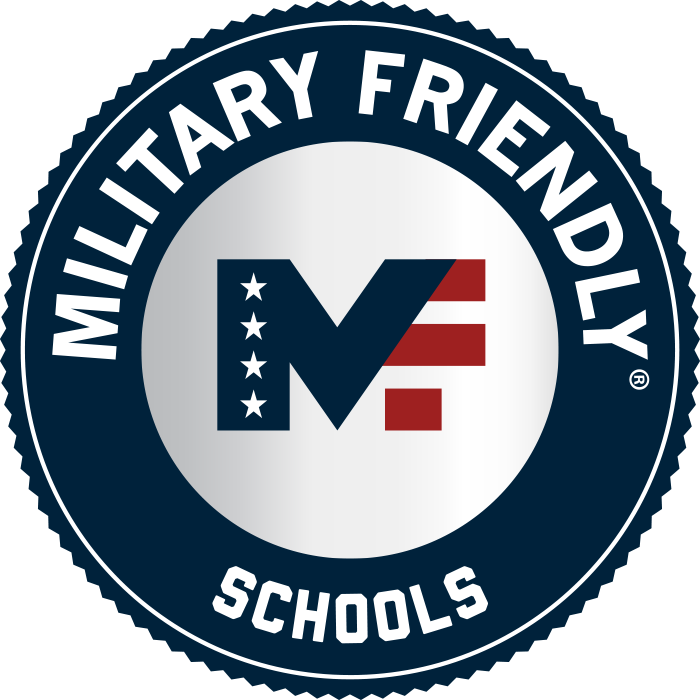The Military Friendly® initiative and its recent webinar, “How Military Friendly Schools Rise Above Their Peers,” highlight a fundamental truth: truly serving military students necessitates understanding their unique challenges.
Unlike traditional students, military students often face frequent relocations, unpredictable schedules, and the complex transition from military to civilian life. Our data shows that institutions that proactively address these needs see a significant increase in military student success. This blog post explores the key aspects of understanding and supporting military students, laying the groundwork for their academic and career achievements.
Recognizing Unique Challenges:
The “Understanding Needs” pillar of the Military Friendly® Blueprint emphasizes recognizing the distinct experiences of military students. For example, a student might be deployed mid-semester or face the challenge of translating military training into academic credit. Addressing these challenges requires empathy and a proactive approach.
Key Support Services Offered by Top Military Friendly Schools:
Leading Military Friendly® Schools invest in dedicated support. According to our findings, 90% of top-ranking schools employ full-time certifying officials, 85% have program managers dedicated to military students, and 75% have admissions advisors specializing in military student admissions.
Tailored support services, such as academic counseling, transition resources, and mental health support, are essential. For instance, we’ve seen schools implement specific transition workshops that help students translate their military experience into academic and career skills. Student groups and mentor/buddy programs create a sense of community, fostering peer support and a feeling of belonging for military students.
Policy and Flexibility:
Flexibility is paramount. Modular academic programs that accommodate diverse schedules and locations are crucial for military students. Policies that allow students to return after deployment without penalties, waivers for on-campus living, payment grace periods, and reimbursement for course fees demonstrate a commitment to their unique circumstances. For example, a student deployed during the semester should be able to resume classes without a penalty.
The Importance of Self-Identification:
Encouraging self-identification beyond the application form is a best practice. This allows institutions to gain a deeper understanding of the military student population’s needs and tailor their support accordingly. We’ve seen that schools that use outreach surveys to gather data from self-identified military students are able to better tailor their programs.
Conclusion:
Understanding and addressing the unique needs of military students is fundamental to their success. Military Friendly® Schools that prioritize these needs through dedicated support services, flexible policies, and a strong sense of community create an environment where military students can thrive.
Interested in developing a strategy to better reach potential students from the military community? Connect with one of our Military Marketing Experts and see what makes sense for your school >>>









